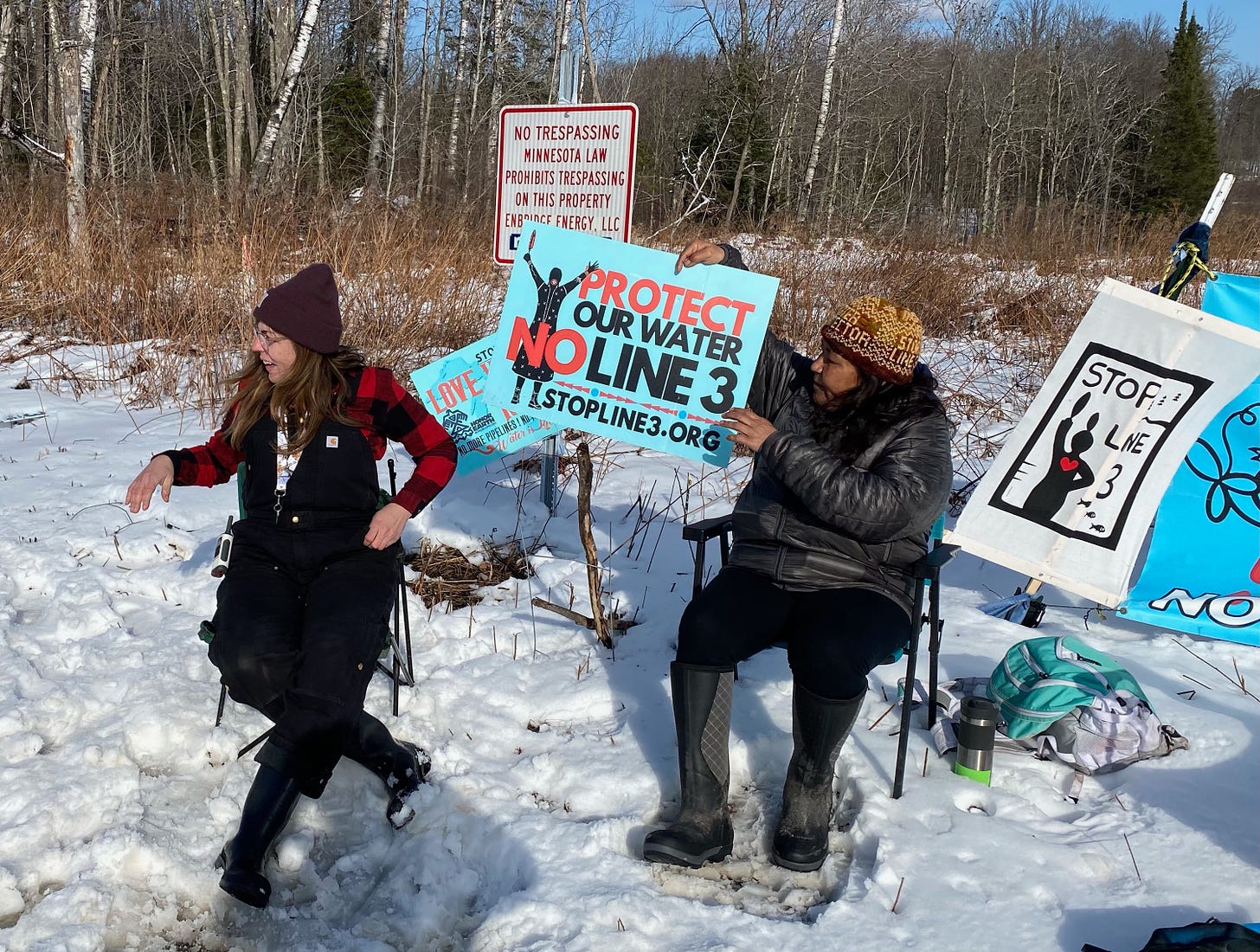Chris May contributed reporting.
NORTH OF PALISADE, Minnesota—Tania Aubid has not eaten solid food for 26 days, but she still has energy to yell at the cops. “No jurisdiction!!” she bellowed at two passing sheriff vehicles on Thursday from a blue beach chair on the sid…



